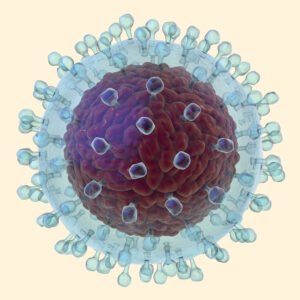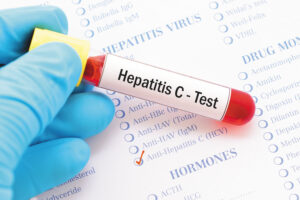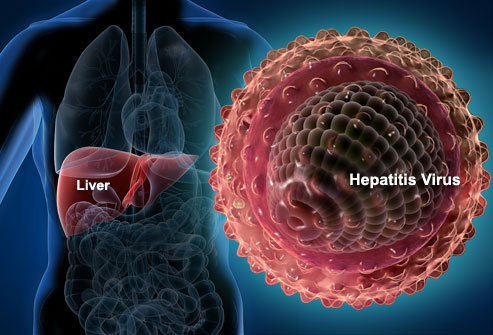Everything You Want To Know About Hepatitis C
Liver a large organ placed on the right side of the belly. The basic function of the liver is to detoxify the blood. The liver is scientifically known as Hepato or Hepatic. So, Hepatitis in simple terms is swelling of the liver. There can be multiple reasons by which swelling can be induced. One of the most common causes of swelling or inflammation of the liver is ‘Hepatitis Virus’. An autoimmune disorder is also a reason for liver dysfunction. In addition to an excess of alcohol and some medications, toxins can cause inflammation of the liver. The Hepatitis virus is of five types that are: hepatitis A, hepatitis B, hepatitis C, hepatitis D & hepatitis E. The difference between the viruses is their severity of the infection. For instance, Hepatitis A & E causes acute hepatitis whereas B, C, & D are chronic hepatitis and can be fatal at times.

Hepatitis C
The World celebrates Hepatitis Day every year on July 28. The celebration is to mark awareness of Hepatitis. During 1960 to 1970, many people lost their lives because of hepatitis C. But scientists and researchers, Harvey. J Alter, Charles M. Rice and Micheal Houghton we’re working to find the reason. The trio won Nobel Prize for their discovery in 2020. They did great discoveries related to hepatitis C. Their knowledge is saving many lives till date. But do you know how did they found the virus? So, in the 1970s patients who underwent blood transfer carried this virus in their blood. All started suffering from liver disease. This is when the third type of hepatitis came into the picture. Initially, they named it as ‘non-A’ and ‘non-B’.

What Is Hepatitis C?
Hepatitis C is an RNA virus. Therefore, it causes viral infection in humans. The virus has the potential to harm the liver. Besides, the virus causes serious medical conditions. It is contagious and has two phases- acute or chronic. Also, it is one of the major cause of liver cirrhosis and liver cancer. According to the World Health Organization(WHO), about 71 million are suffering from chronic HCV.

Stages of Hepatitis C
The viral infection has two stages which are as follows:
Acute hepatitis C: Acute phase is short term viral infection. Usually, within six months the patient should get a cure. But the acute infection may get severe leading to chronic infection. Signs and symptoms can be jaundice, fatigue, nausea, fever and muscle ache. Most of the time acute phase is undiagnosed. Because symptoms are not noticeable.
Chronic Hepatitis C: The patient develops chronic phase when the acute phase is left untreated. Chronic hepatitis is a lifelong infection. Therefore, leading to liver cancer, cirrhosis and even death. Most people don’t develop symptoms in this stage. But sometimes there can be chronic fatigue, depression and loss of appetite.

AlsoRead:https://www.warpaintjournal.com/2020/08/23/hypothyroidism-and-its-management-all-you-need-to-know
Risk Of Transmission Of HCV
Hepatitis C virus is present in the blood of the infected person. So, there are high chances that you may get infected if you come in contact with infected blood.
The following are the some most common routes for transmission:
- Blood transfusion- transfer of blood from an infected person to healthy individuals.
- Sharing nonsterile equipment which carries the virus. For instance, nonsterile medical needles or syringes, sharing of straws or pipes to smoke.
- Using the same piercing or tattoo equipment which is used by the infected person.
- A mother who has the virus can transfer it to her newborn child. Also, the virus can enter the child while breastfeeding.
- Unprotected sex with an infected individual.
- Doctors and nurses that work in Hepatitis C related laboratories. They can by mistake come in contact with needles that carry infected blood.
- Because of the fault of hospital staff, patients who are on dialysis can get infected.
- Sharing razors, a toothbrush with an infected person
- The virus also spread through the cough or sneeze of an infected person. Better protect yourself with a mask.
Mostly the spreading of this virus is through blood only. Therefore, the virus comes under ‘STD‘ sexually transmitted disease. So better take proper protection and know your partner well.

Signs And Symptoms
Out of 70%-80% of infected individuals don’t get any signs. The incubation period for HCV is about six months. Because of which patients don’t get any symptoms. It is also a reason why most of the time acute phase is left untreated. After six months, the virus enters the chronic stage if not treated.
The early symptoms are rare and seen in the acute phase. Also, they are similar to the flu, which is as follows:
- Fatigue
- Nausea
- Vomiting
- Low appetite
- Joint pain
- Muscle weakness
- Stomach pain
- Dark urine
When the virus finally survives in the acute phase, chronic phase develops. In the chronic phase of HCV, liver damage is lasting. Because of liver damage, one might get the following signs:
- Jaundice
- Weight loss
- Severe abdominal pain
- Blood clotting problems
- Breast enlargement in men
- Rashes on body parts like palms, stomach etc.
If the chronic stage is not treated on time liver gets injured and stops working. Because of which toxins start collecting inside the body. So, these toxins affect the brain and other organs in the body.

Is Hepatitis C Treatable?
Yes, hepatitis C is treatable. However, the vaccine is not available for HCV. Therefore, the doctor suggests one medicine or combinations of two or three. Mostly the medicines include antivirals. Antivirals like ribavirin use in pill form. The course of treatment is for 24 to 48 weeks. But one can get vaccines that are available for HBV or HBA. The proposed medicine remove the virus from the body. In addition, it reduces the chances of cirrhosis or liver cancer. When the liver is damaged completely doctors advise going for a liver transplant. Along with medicine, self-care is also important. For instance, avoiding alcohol, illegal drugs or any substance that can aid to liver damage.

Diagnostic Test For Hepatitis C
Diagnosis of HCV is done through many medical tests. Medical Professional also suggest screening for HCV. The screening is important in patients who already facing liver problems. The diagnostic test for HCV is as follow:
- Serologic assays- measures the antibody developed against the virus. The antibody is a basic reaction of the immune system.
- Molecular virologic assays– measures the HCV RNA.
- Other test includes Enzyme Immunoassay(EIA) and Point of care rapid immunoassay.
- Transient Elastography
- Liver Biopsy- Tissue sample of the liver is examined.
- Blood tests
So, there are many tests available for the diagnosis of HCV. To know more about the diagnosis test click on the link
Also Read: https://www.who.int/news-room/fact-sheets/detail/hepatitis-c

Life With Hepatitis C
Hepatitis C virus resides for a longer time inside the human body. Even though medicines and therapy are available. To fully get rid of the virus one has to improve their lifestyle. It is important to make positive changes. Few things or steps one should take for healthy living:
- Eating healthful vegetables or fruits that gives good effects on the body.
- For anyone suffering from any liver disease, it is better to avoid alcohol for the long term.
- Joining support groups or contacting foundations, organisations that aid in living a good life.
- Taking regular health check-up. Consulting doctors if facing any issues.
- Doing exercise, which always has a positive effect on the body. One can try different yoga poses that help in improving health.
- Stop smoking and consuming illegal drugs. They have a direct impact on the liver. Also harms and worsens Hepatitis
- Taking proper rest often helps.

Status In India
India’s population is the second-largest in the world. Making it more prone to get affected by Hepatitis. In 2018, over three to nine million Indians were affected by the Hepatitis C virus. In states like Punjab, Haryana and some parts of Uttar Pradesh are still getting affected by HCV. People are unaware of Hepatitis and related problems. Because most of the time it is asymptomatic. This is a major reason why there are so several deaths of HCV. HCV is assumed as a hidden epidemic in India. Also, in India people die because of no liver donation. Organ donation is important to save lives. There are foundations and NGO’s which run awareness programs. Foundations like RANN and Hepfree India carry out an awareness program for hepatitis. Such, organisation conduct marathon for spreading hepatitis awareness. For example, ‘hepathon’~ walk for the liver event is organised by Pharmacy colleges in Maharashtra.

In conclusion, the hepatitis C virus is toxic. It is important to focus on eradicating the virus from the world. Take care of your liver, give it all the attention it deserves!
So if you liked the article share it with everyone because LIVER is important. Attaching a link of the video of Hepatitis C survivor, do give it an eye.





Got to know many things 👍
Very useful article
Keep going…👍